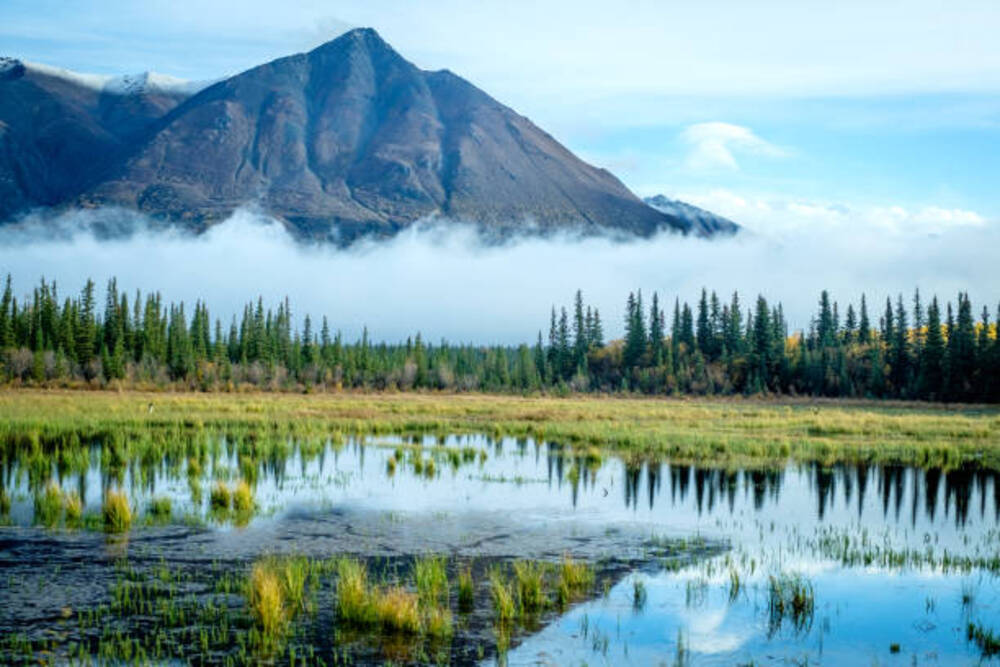The Biden administration has approved a scaled-back version of ConocoPhillips’ $7 billion oil and gas drilling Willow Oil project in Alaska. This was announced by the U.S. Department of Interior on Monday. There was an aggressive eleventh-hour campaign from opponents.
Despite this, the choice was made as President Joseph Biden tried to strike a balance between appeals to enhance domestic fuel sources to keep prices down and his goals of decarbonizing the American economy.
The Willow Oil Project
In northwest Alaska, ConocoPhillips planned to construct up to five drilling sites, dozens of miles of roads, seven bridges, and pipelines. The project with three drill pads was approved by the Interior Department. They stated last month that there are worries regarding Willow’s effects on greenhouse gas emissions.
This month, its Bureau of Land Management made a “preferred alternative” recommendation that calls for three drill sites and less surface infrastructure than was initially suggested.
On Monday, the agency announced a 40% size reduction to ConocoPhillips’ request.
In order to accomplish this, they rejected two requested drill pads that would have decreased the amount of freshwater used by the project and prevented the construction of 11 miles of roads, 20 miles of pipelines, and 133 acres of gravel.
Endorsement of Willow Oil Project
The version of the proposal was backed by Alaskan elected officials and ConocoPhillips. According to the government, this initiative will have less of an effect on polar bear and yellow-billed loon ecosystems.
But the environmentalist groups do not agree.
They say the drilling project in Alaska approved by the Biden administration may have a serious impact on habitats for species like polar bears and yellow-billed loons.
Drilling can have significant impacts due to the construction of roads, bridges, pipelines, and other infrastructure. It can fragment and destroy habitats, making it difficult or impossible for wildlife to move between different areas. Drilling can also lead to noise pollution, which can disrupt the behavior and communication of animals, making it more difficult for them to find mates or prey.
Criticism from Environmental Groups
Environmental organizations criticized the Biden administration for trying to address climate change in “both” ways. Wenonah Hauter, executive director of Food & Water Watch, said that encouraging the development of renewable energy is useless if we continue to permit corporations to violate environmental regulations and cause pollution at will.
No one can exclude oil spills and other accidents that can have catastrophic impacts on wildlife populations.
For example, an oil spill could coat the fur of a polar bear, which would reduce its ability to regulate its body temperature and increase the risk of hypothermia. Similarly, a spill could contaminate the food sources of yellow-billed loons, which feed on fish and other aquatic organisms.
Climate change, which is exacerbated by the burning of fossil fuels, is also a significant threat to species like polar bears and yellow-billed loons. As the Arctic warms, sea ice is melting at an unprecedented rate, which makes it more difficult for polar bears to hunt and travel. Similarly, warming temperatures can alter the timing of spring thaw, which can have a cascading effect on the food web and lead to declines in populations of fish and other prey species that yellow-billed loons rely on.
New Protections for Alaskan Land and Water
The decision was taken following the Biden administration’s announcement of enhanced land and water protections for Alaska on Sunday. It declared that 13 million acres of “ecologically sensitive” Special Areas within Alaska’s petroleum reserve would receive protection, and declared nearly 3 million acres of the Beaufort Sea in the Arctic Ocean “indefinitely off limits” for oil and gas leasing, expanding on an Obama-era ban and effectively blocking U.S. Arctic waters to oil exploration.
However, the criticisms from environmental groups emphasize the need for a comprehensive plan to reduce carbon emissions while simultaneously promoting clean energy development.

